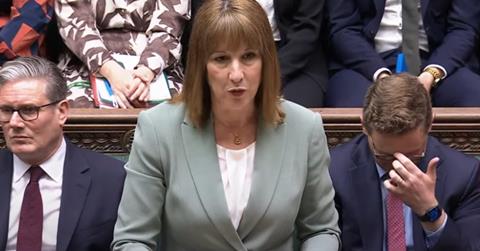Trade body says uncertainty has set in ahead of autumn Budget
Economic risks for newbuild private housing and repair, maintenance and improvement have “risen considerably” as fears mount over the prospect of fresh tax rises this autumn, according to the Construction Products Association (CPA).
The trade body’s summer forecast, published today, said the outlook for construction output is unchanged from the spring but uncertainty was setting in around chancellor Rachel Reeves’ plans for the autumn Budget.

Private housing output was forecast to rise by 4% in 2025 and 7% in 2026, recovering from a low base, while private housing repair maintenance and improvement (RMI) is expected to rise by 2% in 2025 and 3% next year. Infrastructure is forecast to rise by 1.9% this year and 4.4% in 2026.
CPA head of construction research Rebecca Larkin said: ”Although everything continues to point towards the gradual growth in construction activity gathering pace over the rest of this year and in 2026, the only thing that has changed is the uncertainty.”
She said the key questions for the housing and RMI sectors were when mortgage rates will fall for homebuyers, when BSR delays will ease and when homeowners will feel confident enough to spend on home improvements.
The forecast comes after a string of government U-turns on its plans to means test winter fuel payments and cut the rising cost of the welfare system following major rebellions from backbench Labour MPs.
It is now widely expected that Reeves will need to raise taxes by as much as £20bn in the autumn, following a £40bn rise last October which has been blamed for creating a chilling effect on confidence.
CPA head of construction research Rebecca Larkin said it is now “looking increasingly likely that the chancellor will need to either raise taxes or cut capital expenditure, or do both” to make ends meet.
The CPA’s summer forecast said overall construction output would rise by 1.9% in 2025 and 3.7% in 2026, driven largely by the increase in new build private housing, private housing RMI and infrastructure.
But it warned these sectors all remain vulnerable to near-term delays, including dampened consumer confidence and the risk of investment decisions on infrastructure projects being paused.
Ongoing six to nine-month delays to approvals from the Building Safety Regulator (BSR) for high-rise housing are also not expected to be resolved during the forecast period and will continue to smother output growth, according to the forecast.











No comments yet